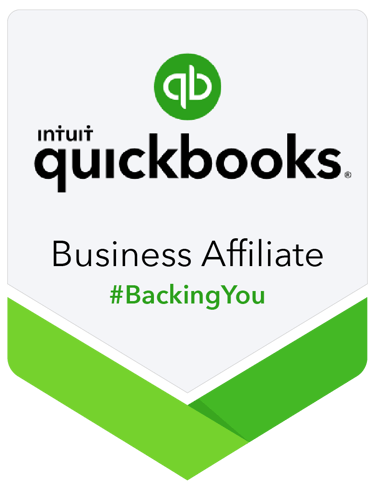Tax Deductions for Freelancers & Solopreneurs: Complete 2025 Guide
Discover essential tax deductions for freelancers and solopreneurs. Learn what expenses you can deduct, how to track them, and avoid costly mistakes.
TAX INFORMATION
Jerry Blanco
6/30/20254 min read


Stop Leaving Money on the Table – Master These Essential Tax Deductions to Keep More of What You Earn
Picture this: You're wrapping up your first year as a freelancer, feeling proud of the income you've generated. Then tax season hits, and you realize you've been paying Uncle Sam way more than necessary. Sound familiar?
If you're a solopreneur, freelancer, or running a small business, you're likely missing out on hundreds—or even thousands—of dollars in legitimate tax deductions simply because nobody taught you what to look for. The good news? It's easier to fix than you think.
Let's dive into the world of tax deductions without the confusing jargon or overwhelming complexity. Think of this as your friendly guide to keeping more money in your pocket legally.
What Exactly Are Tax Deductions? (And Why Should You Care?)
Before we jump into the good stuff, let's clear up what tax deductions actually are. Simply put, a tax deduction reduces your taxable income, which means you pay less in taxes.
Here's a quick example: If you earned $50,000 this year and have $5,000 in legitimate business deductions, you only pay taxes on $45,000. Depending on your tax bracket, that could save you $1,000 or more!
The key word here is "legitimate." The IRS allows you to deduct ordinary and necessary business expenses—costs that are common in your industry and essential for running your business.
The Golden Rule: Keep It Business-Related
The fundamental rule for any tax deduction is that it must be for business purposes. That morning latte? Personal expense. That coffee meeting with a potential client? Business expense. The line isn't always crystal clear, but when in doubt, ask yourself: "Did this expense help me generate income or run my business?"
Essential Tax Deductions Every Solopreneur Should Know
1. Home Office Deduction: Your Biggest Money-Saver
If you work from home (even part-time), this deduction can be substantial. You have two options:
Simplified Method: Deduct $5 per square foot of your home office space, up to 300 square feet (maximum $1,500 deduction).
Actual Expense Method: Calculate the percentage of your home used for business and deduct that percentage of your home expenses (mortgage interest, utilities, repairs, etc.).
Pro Tip: Measure your workspace and take photos. The IRS loves documentation.
2. Office Supplies and Equipment
This category is broader than you might think:
Computer, printer, desk, chair
Software subscriptions (Adobe Creative Suite, QuickBooks, project management tools)
Pens, paper, notebooks, folders
Phone and internet bills (business portion)
Business cards and marketing materials
3. Professional Development and Education
Investing in yourself pays double dividends:
Online courses and certifications
Industry conferences and workshops
Professional books and publications
Coaching or mastermind programs
4. Marketing and Advertising Expenses
Everything you spend to promote your business:
Website hosting and domain fees
Social media advertising
Business networking events
Promotional materials and giveaways
Email marketing platforms
5. Transportation and Travel
For Local Business Travel:
Mileage (70 cents per mile for 2025)
Parking fees and tolls
Public transportation
Uber/Lyft for business trips
For Business Travel:
Airfare, hotels, rental cars
50% of meals during business travel
Conference registration fees
Important: Keep a mileage log or use apps like MileIQ to track business miles automatically.
6. Professional Services
Don't forget these often-overlooked deductions:
Accounting and bookkeeping services
Legal fees
Business insurance premiums
Bank fees for business accounts
Professional memberships and licenses
Special Deductions for Different Types of Solopreneurs
For Creatives and Designers
Art supplies and materials
Photography equipment
Studio rental or dedicated workspace
Model fees and location costs
Portfolio development expenses
For Consultants
Client entertainment (50% deductible)
Business meals
Professional wardrobe (if industry-specific)
Research materials and subscriptions
For Service Providers
Tools and equipment specific to your trade
Vehicle maintenance (if used for business)
Uniforms or protective gear
Industry-specific software and apps
How to Track Your Deductions Like a Pro
The best deduction in the world is worthless without proper documentation. Here's your simple tracking system:
1. Choose Your Method
Digital: Apps like Expensify, Receipt Bank, or even a simple Google Sheets template
Physical: A dedicated folder or envelope for receipts
Hybrid: Snap photos of receipts and store them digitally
2. Record These Details
Date of expense
Amount spent
Business purpose
Who you paid
Receipt or proof of payment
3. Weekly Review Habit
Set aside 15 minutes every Friday to review and categorize your expenses. This small habit will save you hours during tax season.
Common Mistakes That Cost You Money
Mistake #1: Mixing Personal and Business Expenses
Keep separate bank accounts and credit cards for business. This makes tracking infinitely easier and looks more professional to the IRS.
Mistake #2: Not Keeping Receipts
The IRS can audit you up to three years after filing. Keep digital or physical copies of all receipts for at least four years.
Mistake #3: Being Too Conservative
Many solopreneurs under-deduct because they're afraid of the IRS. If an expense is legitimate and documented, claim it confidently.
Mistake #4: Waiting Until Tax Time
Don't dump a shoebox of receipts on your accountant in March. Track expenses throughout the year for better accuracy and less stress.
Red Flags to Avoid
While you should claim every legitimate deduction, be aware of these IRS red flags:
Claiming 100% business use of vehicles or equipment that's clearly dual-purpose
Excessive meal and entertainment expenses
Round numbers that suggest estimates rather than actual expenses
Home office deductions larger than your total business income
Your Next Steps: Taking Action Today
Ready to start saving money on taxes? Here's your immediate action plan:
Set up a dedicated business bank account if you don't have one
Choose an expense tracking method and start using it this week
Gather receipts from the past three months and enter them into your system
Take photos of your home office and measure the space
Review your credit card statements for missed business expenses
Schedule a monthly money date to review and categorize expenses
When to Get Professional Help
While tracking your own deductions is absolutely doable, certain situations call for professional guidance:
Your business income exceeds $100,000
You have employees
You're facing an IRS audit
You're unsure about major deductions
You want to focus on growing your business instead of managing books
Remember, the cost of professional bookkeeping or accounting services is itself a tax deduction!
The Bottom Line: Your Money Deserves Better
Tax deductions aren't about gaming the system—they're about claiming what's rightfully yours. Every legitimate business expense you track and deduct is money that stays in your pocket instead of going to the government.
Start small, stay consistent, and watch your tax savings grow. Your future self (and bank account) will thank you.
Ready to Take Control of Your Business Finances?
If tracking deductions feels overwhelming or you want to ensure you're maximizing every possible tax advantage, I'm here to help. As a bookkeeper specializing in small businesses and solopreneurs, I can set up systems that make tax time a breeze instead of a nightmare.
Schedule a free 15-minute consultation to discuss how professional bookkeeping can save you time, money, and stress.


